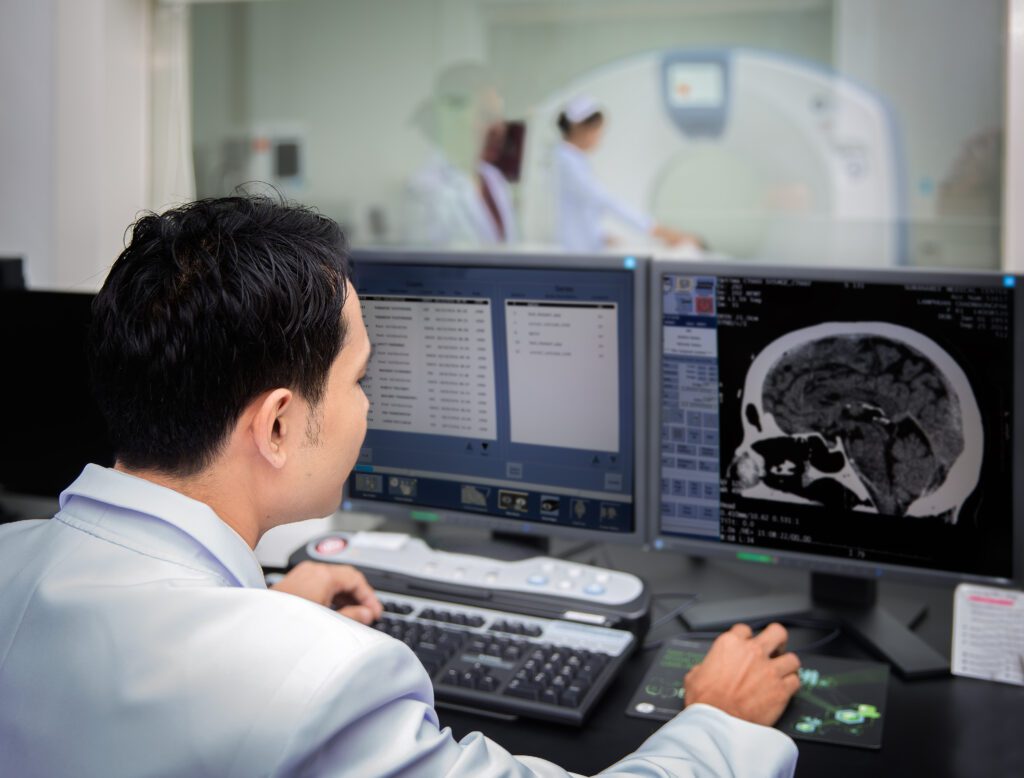A head injury is a terrifying experience that should never be taken lightly. Even a mild hit to the head can cause damage inside the brain and you may not be able to notice until it’s too late. Despite feeling fine after the injury, you can end up developing symptoms later that result in issues with concentration, difficulty with balance, speech impediments, and intolerance to bright lights. To determine whether your injury is cause for concern, your doctor might schedule a CT scan for your head injury to assess any underlying issues.
What is a CT Scan for Head Injuries?
A computed tomography (CT) scan allows a doctor to see directly into your body and better diagnose any health problems. A CT scan combines the use of a computer and X-rays to create detailed images of your head. This form of painless imaging shows even more detail than a traditional X-ray.
During a CT scan, you lie flat on an examining table while a thin beam encircles your head to provide multiple images of your brain from a variety of angles. The actual CT scan photos are two-dimensional. However, once the computer stacks the images on top of each other, they create a clear three-dimensional picture.
Preparing for Your Head CT Scan
If your CT scan requires a contrast dye to better produce details, your technologist will provide this before your scan. On the day of your scan, you may be required not to eat or drink anything before the scan. Other important preparation tips include removing any metal jewelry that could interfere with your CT scan.
Overall, a CT scan for head injuries is a fast procedure. When your scan is complete, results are sent to your doctor for review. After the review, your doctor can discuss the diagnosis and set up an action plan to help you recover quickly.
Benefits of a CT Scan for Your Head
If you’ve suffered from a head injury, a CT scan can help diagnose any structural damage to your brain. Some head injuries cause microscopic changes at a cellular level that need extra tests to further diagnose, however, a CT scan is an excellent first step in determining many types of issues including the following:
- Seizures
- Loss of consciousness
- Change in consciousness
- Clinical depression
- Sudden agitation or confusion
- Mental status that hasn’t improved overtime
- Alzheimer’s disease
If the results come back inconclusive and you need further evaluation, your doctor may recommend you receive a magnetic resonance imaging (MRI) procedure.
At American Health Imaging, we offer several types of imaging to help you receive the most accurate results and get on the road to recovery as quickly as possible. From CT scans, MRIs, ultrasounds, and more, technologists perform the latest high-quality imaging procedures to help diagnose a number of injuries and underlying issues to get you the results you need in no time.
Contact us today or talk to your doctor about scheduling a head CT scan so you can stop any underlying problems before they become a serious issue.
